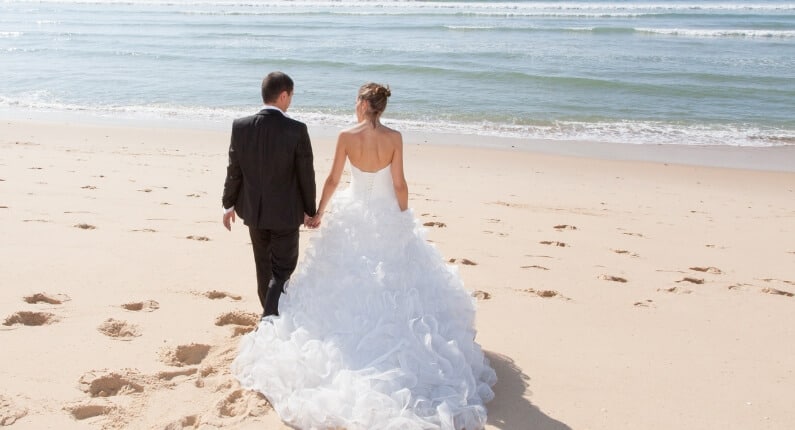Destination weddings have become increasingly popular in recent years with one in four British couples now choosing to tie the knot abroad. Mauritius, St. Lucia, Jamaica and Bali are all among the top wedding locations and it’s easy to see why: virtually guaranteed sunshine, a stunning backdrop to those all-important wedding photos and the opportunity to combine the ceremony and honeymoon.
However, planning a wedding can be stressful at the best of times but when you are inviting guests to travel halfway across the world, it throws up a whole new world of etiquette questions. Here, we have tackled some of the most frequent destination wedding etiquette issues that are likely to arise and how to deal with them in a well-mannered fashion.
When should couples send out invitations?
While the average lead-time for invitations is six to eight weeks before the wedding, destination wedding invites should be sent at least three months in advance. If your guests have already received a save-the-date card they will be expecting a formal invitation to follow and in this case two months may be sufficient.
For destination weddings that are particularly far from home or complex, you could encourage a two-step RSVP, one with the intention of attending and the other to fill in final travel details.
what information should be included?
Be careful not to turn your invitation into a travel brochure. Instead, keep the wording simple and include a separate information card with more details about the destination. It is a good idea to set up a wedding website where guests can access information about places to stay and visit as well as the likely weather conditions to help them plan their outfits.
If you are hosting any events around the wedding, such as a rehearsal dinner the night before or a post-wedding brunch, make sure you include them on the RSVP card so you know how many guests are attending.
ARE Save-the-Date announcements NECESSARY?
The timeline for planning a destination wedding is different from a traditional at-home ceremony and the more notice your guests receive, the better. Couples should plan to send out save-the-date cards at least six months ahead to allow guests to make the necessary travel arrangements and book the time off work.
Is your wedding is going to be held in a remote location that is difficult to access? It is courteous to provide guests with details of travel options, such as buses, taxis or car hire, and offer to help any elderly relatives with the arrangements . Again, a wedding website is very useful for helping guests to familiarise themselves with the location and plan their stay.
If you are still figuring out the wedding itinerary you can also use the save-the-date cards to ask guests to pick their favourites from a list of potential activities. That way you can decide if bungee-jumping and white water rafting are the most likely crowd-pleasers or if you are better off sticking to more sedate pastimes.
What is the couple expected to pay for?
Strictly speaking, the bride and groom are only required to pay for the ceremony and wedding reception, including food, drink and entertainment. You are not expected to cover the guests’ travel and accommodation. However, it is considered good form to help the guests as much as possible by providing details of the best, and most economical, way to get there as well as tips on places to stay.
You could also consider block-booking hotel rooms for your guests as many hotels offer discounted rates for large group bookings. It is a thoughtful gesture to provide welcome gift bags on arrival, containing items that might come in handy like suntan lotion, a guidebook and perhaps a pair of flip-flops or some local snacks.
Should the couple organise activities for the wedding party?
Because destination weddings are often longer celebrations, taking place over a number of days, it is commonplace for couples to host additional events, such as welcome drinks or a farewell brunch.
Don’t go overboard and fill every day with activities that your guests then feel obligated to participate in. They more than likely want some time to relax and enjoy their holiday so just one or two excursions or activities should do the trick.
What is the gift etiquette for destination weddings?
While it is customary to ask for wedding gifts, destination weddings already require guests to spend extra money on travel and accommodation. It can be a very nice touch to include a message in the invitations along the lines of: “The honour of your presence is the only gift we require”.
If you do compile a wedding gift list, remember to ask guests to send gifts directly to your home to save on suitcase space for both giver and receiver.
Alhough destination weddings take a bit more planning, all the extra effort will be rewarded when all your loved ones are gathered in an idyllic setting to celebrate your nuptials.

